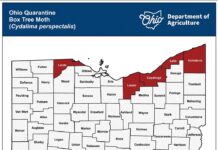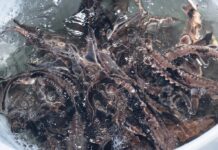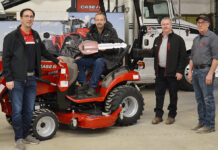Have you ever thought about where the rain water goes once it leaves the roof of your home? You may have your downspouts directed into the yard, tied into the storm system along the road, or even just discharging within the street itself.
However, there is much more than your roof runoff entering the storm systems. Below are a few items to consider while working around the home.
Yard Waste
Many different items can fall under this category, including grass clippings, leaves, twigs and branches, stumps and shrubs.
These items can cause damage to our waterways and storm systems by clogging pipes, adding unnecessary nutrients, and additional bacteria to the wildlife habitat.
Collection sites
Throughout the county, many communities have drop-off sites, which accepts these items at no cost (www.timetorecycle.org/recycling/yard-wastestark.php).
Once collected, these items can be recycled into usable materials, such as mulch and topsoil. Composting these items at home can provide the same results, as well.
Fertilizer and chemicals
The use of fertilizers has never been easier. Just make a trip to your local home improvement store and come home with a bottle that can be attached to your garden hose.
For those a little less adventurous, make a call to one of the dozens of lawn care companies to have them apply what is needed for a green lush lawn.
There are many things to consider when applying these items to your yard that may be overlooked. The largest concern is the weather. Is it going to rain, is it windy, how much to put down, and is more better are just a few.
Once the product is on the grass, a quick rain can not only make your yard unresponsive to the application, but can cause ill effects to the water quality within the local habitat. The storm system or ditches within your neighborhood are not designed for pollutants.
Streams and rivers
These do not lead to a waste water treatment plant, but directly to a nearby stream or river. Much the same is true when mowing your yard.
Blowing the grass clippings from a yard that has been treated (or not) will end up in the same place.
The roadways are intended for storm water runoff, not grass clippings and chemicals. Be careful not to apply these items when rain is in the forecast and be precise with your application.
Ensure the product is only on the target area, not in the road, sidewalks, or driveway.
Waste water
Finally, is the idea that the storm system is going to an area that will treat the water before it’s released.
The years of pouring used motor oil, that left over paint, and other household items are long gone.
The term “storm sewer” is in the past. The system will not treat anything before it enters the local waters and will be very problematic to anything that lives within them. Communities are required by the Ohio Environmental Protection Agency to monitor the areas where storm systems exit into bodies of water and are known as outfalls.
These areas are inspected to see if any type of discharge is occurring other than storm water and if so, they are required to trace to the source of the “illicit discharge,” and could result in fines or even jail time.
As one of the American founders of the modern environmental movement, Barry Commoner stated, “Environmental pollution is an incurable disease, it can only be prevented.” It’s up to us to ensure these preventative measures are in place for the ones that follow in our footsteps.












